Renault 5 E-Tech first drive: retro hatchback is one of the best EVs of 2024
A little bit of history repeating

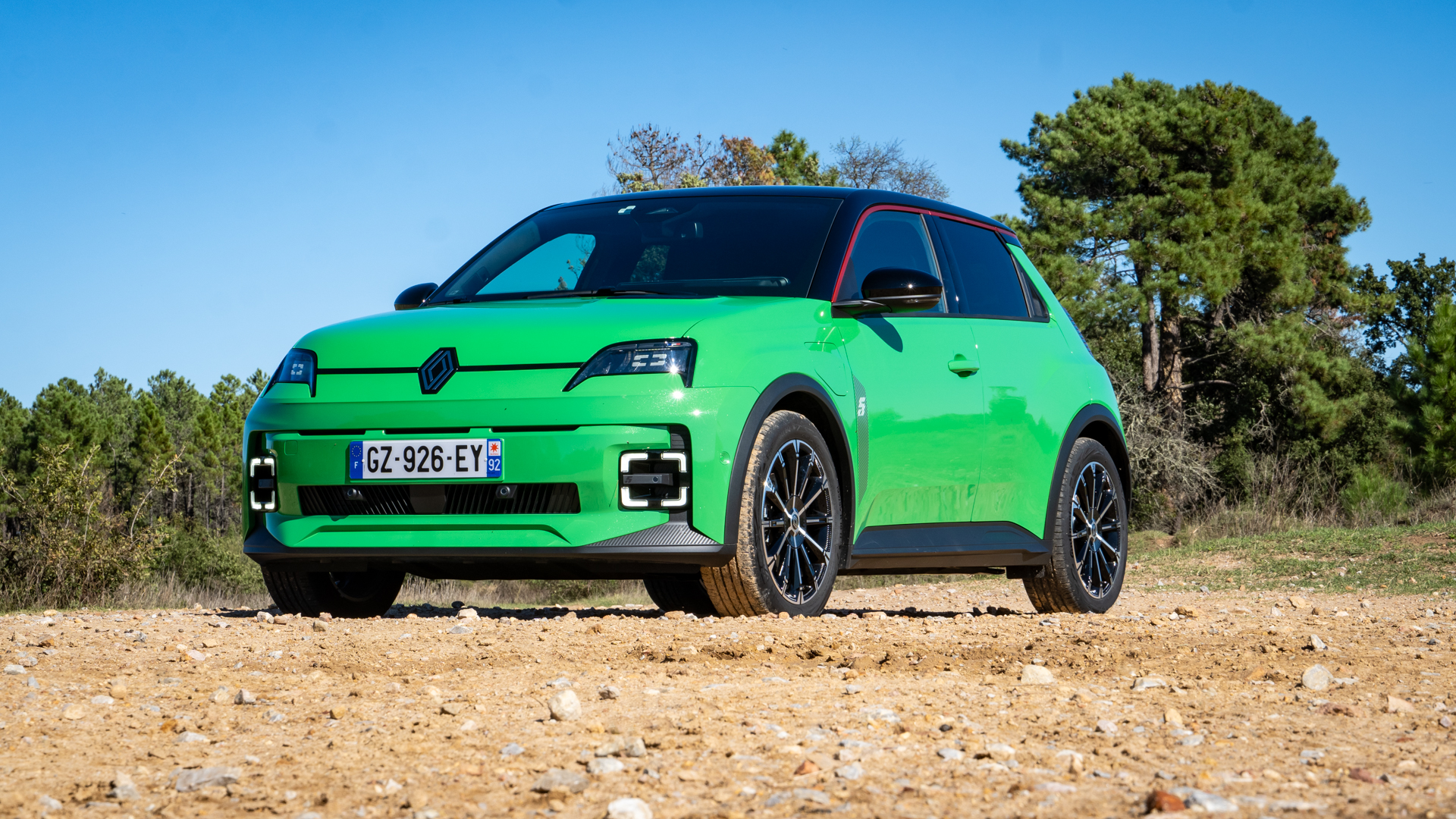
The Renault 5 is back. Twenty-eight years after it went out of production, Renault has reintroduced the archetypal French hatchback as an electric car fit for the 21st century.
Renault insists this isn’t a pastiche, nor a car intended to be overly nostalgic, but I’ll leave you to look at the retro seats and make your own mind up on that one.
It’s much larger than the original, of course, in the same way today’s Mini Cooper and Fiat 500 are also much bigger than their grandparents. But the 5 is still small by modern standards, with a sensible amount of power (if you want more the Alpine A290 will be along soon), a cleverly designed interior, complete with optional baguette holder, and a killer price tag.
Price and availability
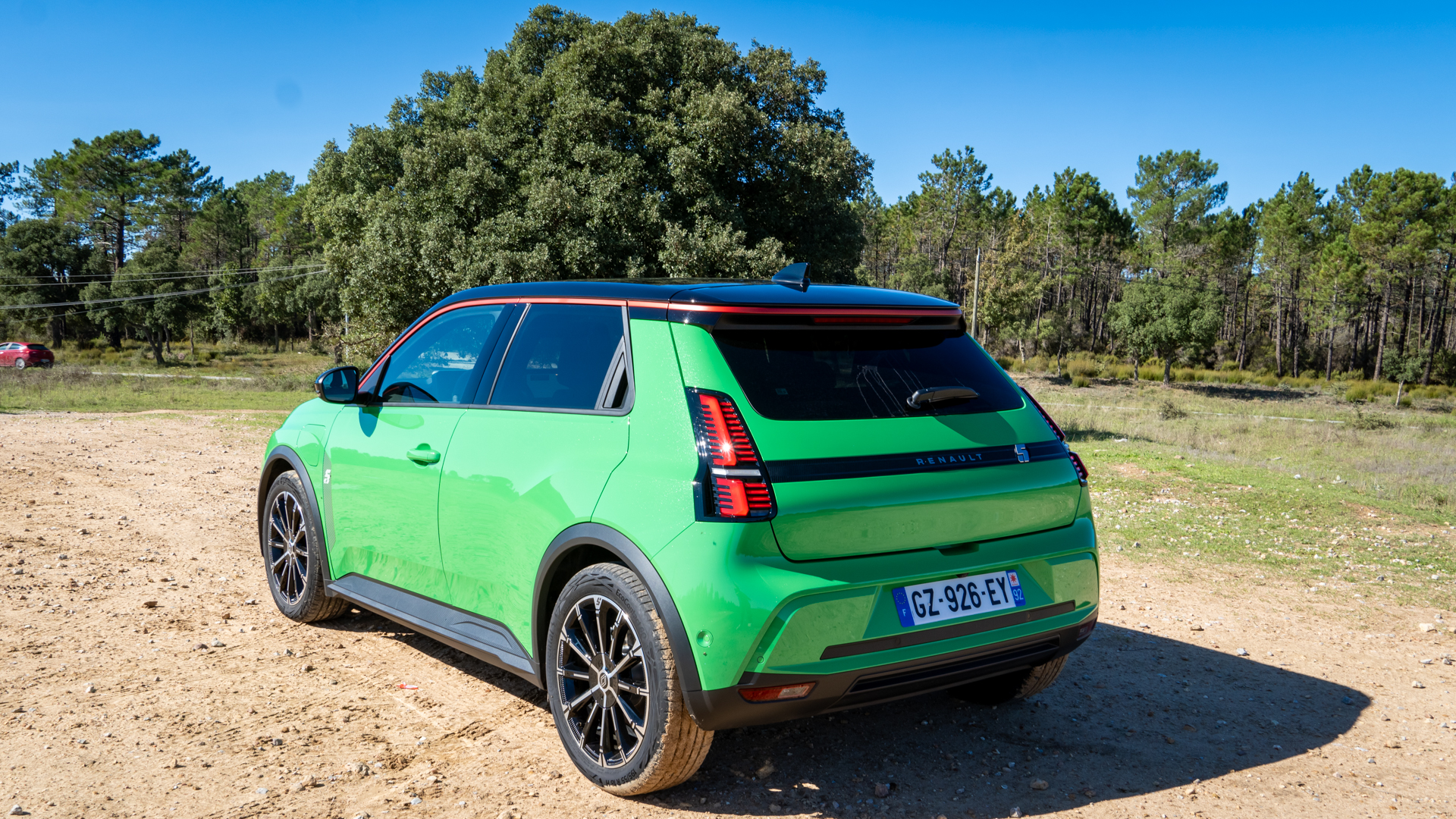
Speaking of price, as of mid-October Renault is yet to say exactly how much the 5 will cost. However, it is widely understood that the car will be priced from about £23,000 in the UK, and the first deliveries will land on our shores in the first half of 2025. We also understand the entire range will squeeze below £30,000 – so you can have the top spec, all the kit and the biggest battery for slightly less than the entry-level Mini Cooper E.
If all this comes true, the Renault 5 will be excellent value for money, especially considering its circa 250-mile range and bags of character. The UK order books will open in early 2025 and the first deliveries will land in April.
Battery, range and performance
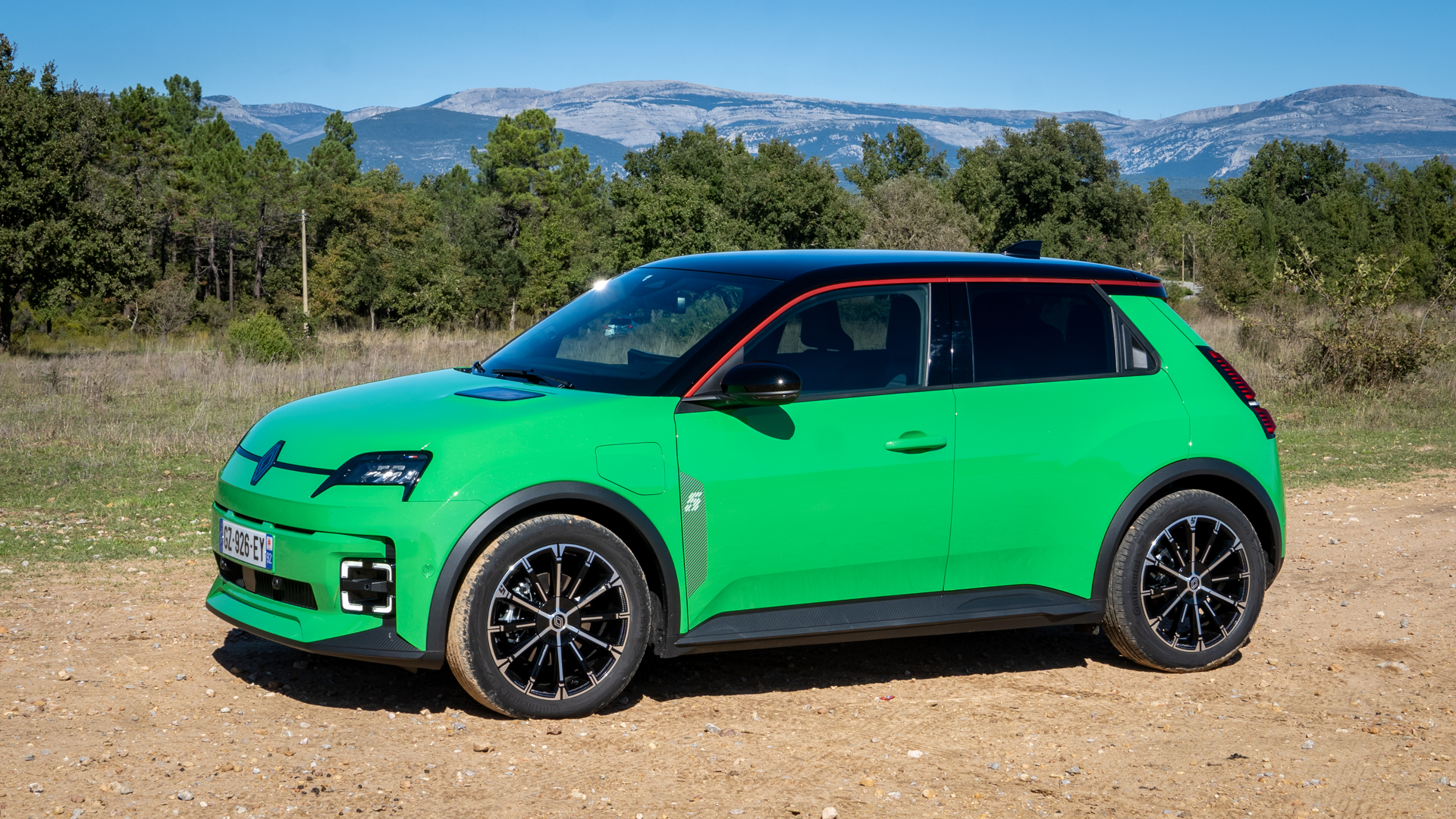
At launch just one battery option will be available. It’s the one we drove for this review and it has a capacity of 52 kWh, with a claimed range of 255 miles. For what it’s worth, our car indicated 408 km (253.5 miles) of range at 100 percent, and even after a full day of driving around the South of France it still had more than 55 percent remaining.
At that charge level it indicated 236 km (147 miles) of remaining range, which suggests a full charge would manage 457 km (284 miles) – comfortably beating both Renault’s claim and the car's full-battery prediction. Although spanning about four hours, the driving route mostly consisted of town driving, with a few rural roads and only short sections of motorway. According to the car’s own computer, it achieved an impressive efficiency of 4.66 miles per kWh.
Get all the latest news, reviews, deals and buying guides on gorgeous tech, home and active products from the T3 experts
As with any EV, a long stint of 70 mph will see the indicated range fall more quickly. But since the Renault 5 is primarily designed as a town and city car, over 250 miles of range in that environment is impressive. For reference, Mini also says its Cooper E can manage about 250 miles on a charge, while the Fiat 500e is closer to 200.
The 52 kWh battery of the Renault 5 charges at up to 100 kW, which is slightly higher than the 95 kW of the largest Mini Cooper battery. The smaller 40 kWh Renault (which will arrive in a few months’ time) has a claimed range of 312 km (194 miles) and a maximum charge rate of 80 kW – also beating the smaller-battery Mini by 5 kW. Renault says a 10-80 percent charge takes about 30 minutes.
The Renault 5 with the smaller 40 kWh battery will come with a 90 kW (120 hp) motor. Spend an extra £2,000 (final UK prices to be confirmed) and you can upgrade to the 52 kWh battery and a 110 kW (150 hp) motor. All versions are front-wheel-drive and none are particularly quick, with the lesser car accelerating to 62 mph in about 9.0 seconds, and the more powerful version managing the sprint a second quicker.
Driving impressions
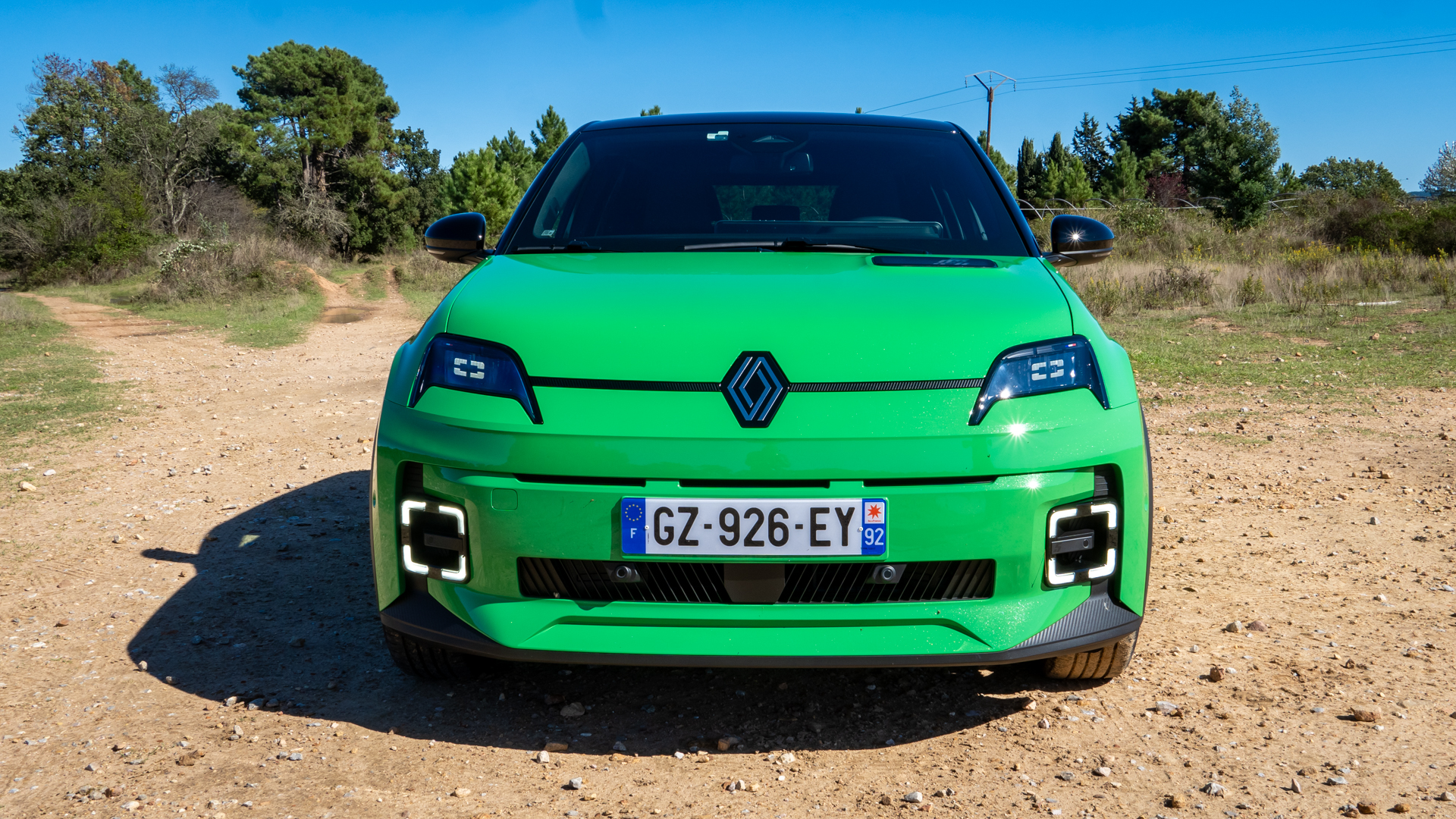
The numbers show the Mini is quicker, and it’s more fun to drive too. But with the Renault there’s a different character here from what you might expect. This isn’t so much a car to be grabbed by the scruff of the neck and chucked into corners – we’ve to wait for the pumped-up Alpine A290 for that – but one that is surprisingly comfortable and refined.
The 5 rides well and stays nicely composed through quicker corners. It’s a real joy to drive through town and along country roads, but in the same way an underpowered and unfamiliar airport rental can be good fun to fling around a holiday resort, rather than being the last word is sporting prowess.
It drives with more maturity than I’d expected, and was at home on the autoroute as cruising around Antibes harbour. Accelerate quickly out of a junction and the front wheels will skip a little, but there’s only a hint of torque steer pulling at the wheel, and although a touch scruffy when driven beyond its comfort zone, the 5 never feels wayward. It’s a car that takes a suitably laissez-faire approach to getting you from A to B.
The relaxed demeanour of the 5 suits its character well, but it makes me eager to see how much Alpine turns up the wick with the quicker, sportier and altogether more aggressive A290, which T3 will be driving very soon.
Interior and technology
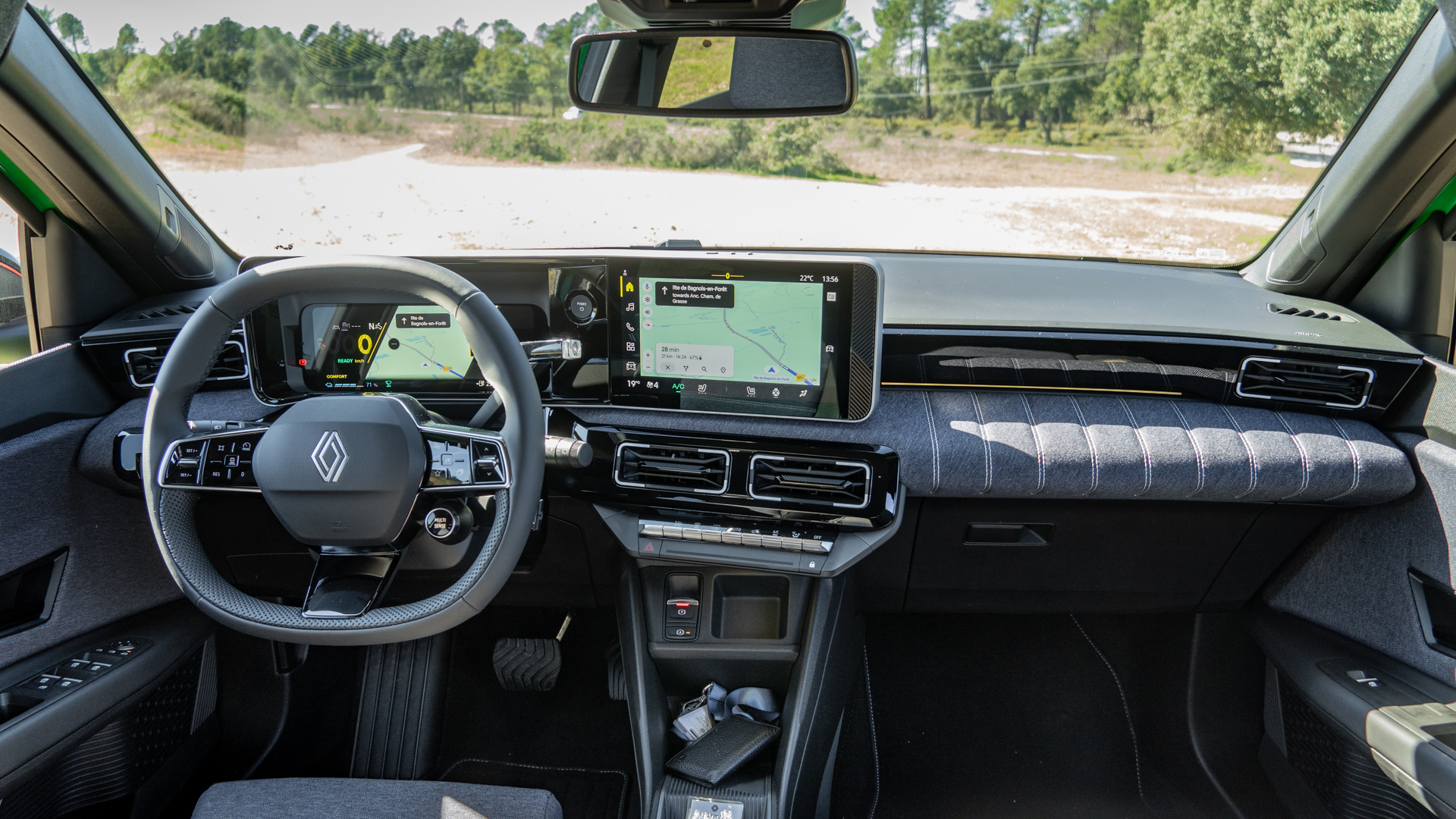
It’s worth saying again just how comfortable the 5 is. It also benefits from a quiet cabin – save for a bit of whine from the electric motor – and seats that not only look fabulously retro, but are a pleasure to spend all day in.
At least, the front ones are. As with any three-door hatchback, the rear seats are fairly tight. I’m only 5’6, but with the driver’s seat set for me, the seat behind was pretty tight. Six-footers will really struggle to sit behind each other, but that’s also true in other cars of this category.
Back to the front, and the driving position and visibility are both good. I also like how Renault has included a set of physical controls for cabin temperature and other key functions, instead of relegating everything to the touchscreen. It’s a 10-inch display that is sharp and clear, and runs Google’s Android Automotive operating system, so there’s integrated Google Maps and Google Assistant, which has access to ChatGPT and has been skinned with Renault’s new avatar, called Reno.
I’m sure Reno can be useful, but it needs better calibration to avoid false-positives, as it frequently mistook conversation between driver and passenger as a question to be answered.
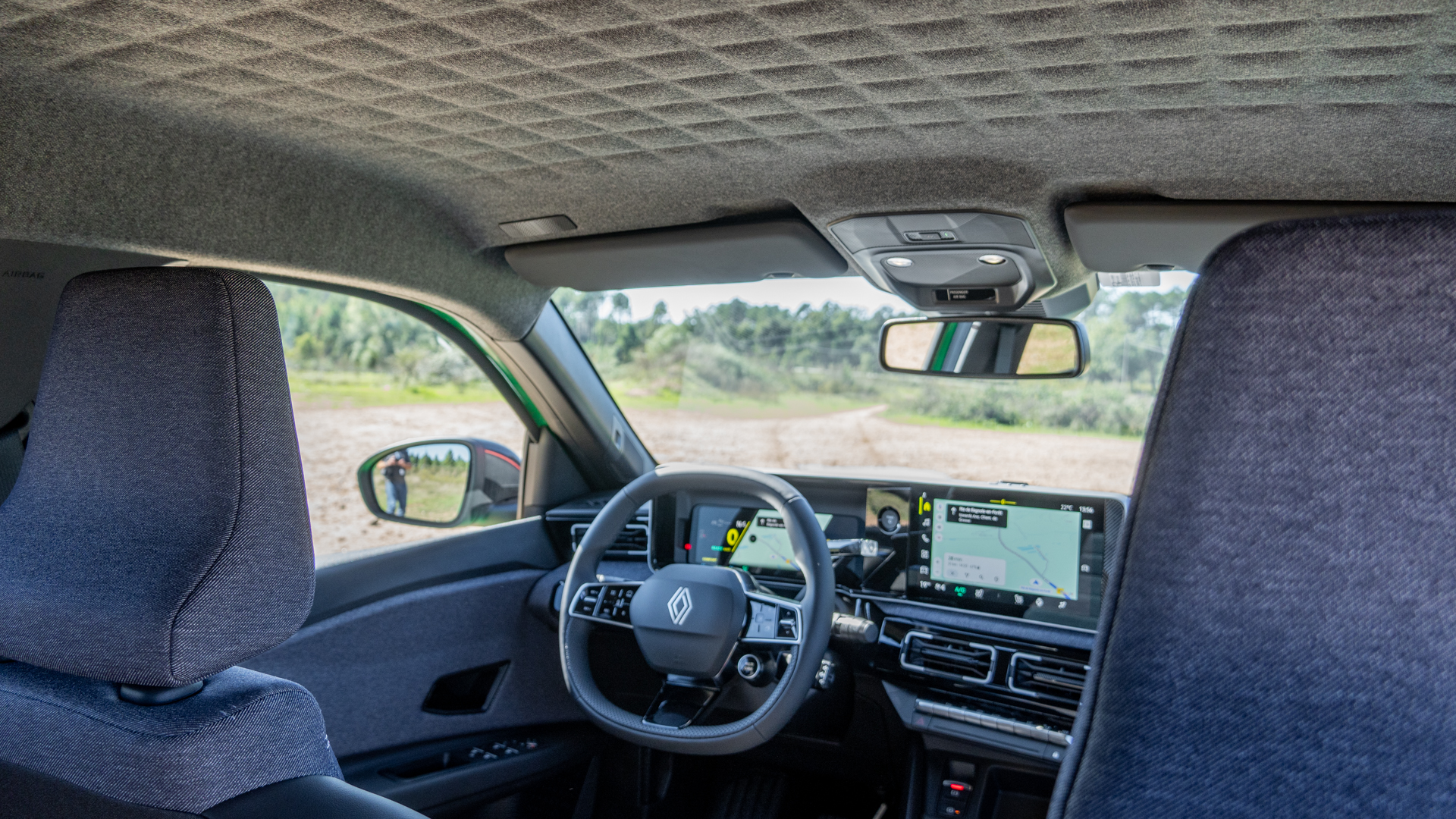
The rest of the UI works really well, especially since Google Maps knows the battery level of the car and where all the nearest charge stations are, although you can use Apple CarPlay if you prefer. Beside the touchscreen is an equally large driver display, complete with a set of wonderfully retro fonts. My only tech criticism is the terrible quality of the reversing camera, which produced grainy and pixelated footage that has no place on a car landing in 2025.
Other interior highlights include a denim-style material made from recycled plastic bottles. It appears on the door cards, portions of the dashboard and on the seats of some trim levels. It looks and feels great, and gives the cabin a bit of aesthetic flair. So too the quilted roof lining, which surely helps with sound dampening too.
Storage options feel adequate. There’s a deep but fairly narrow cubby hole beneath the central arm rest, plus a handy shelf in the centre console and a wireless phone charger too. You can even add a wicker basket-style baguette holder as an optional extra, and Renault is producing a wide range of interchangeable gear selector stalks, including ones adorned with various ‘5’ logos and the French tricolour.
At 326 litres, the Renault 5 has a larger boot than the Mini Cooper E (210 litres) and the Fiat 500e (185 litres), but the lip is fairly high compared to the floor so you might struggle lifting heavier items in and out.
First-drive verdict: Should you buy a Renault 5?
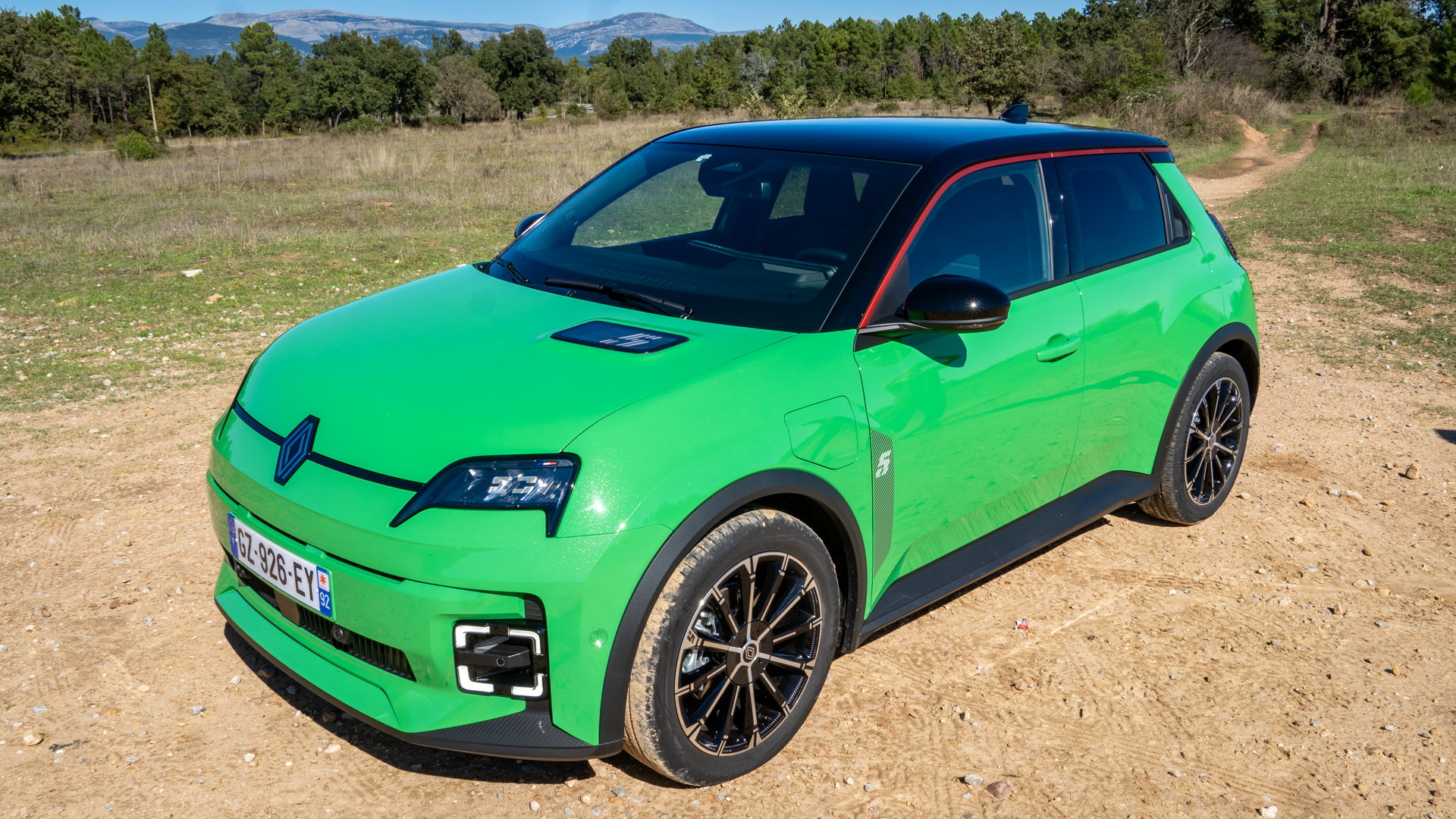
I’m happy to report the Renault 5 lives up to the hype. Not only does it look fantastic inside and out, but it drives well, has a good range, and is expected to be priced very competitively. It is also quiet, comfortable and efficient, with a lovely interior, good tech and enough performance for everyday driving.
Rear legroom is limited, but that’s to be expected from a car in this sector of the market. Adults can fit back there, but really this is a car for a couple, or potentially a second car for a young family. In those roles, and with such a fantastic design, it will surely sell very well indeed
There’s a huge amount to like here, and by smartly undercutting the cheapest Mini Cooper E with all variants of the 5, I think Renault is onto a surefire winner.
Alistair is a freelance automotive and technology journalist. He has bylines on esteemed sites such as the BBC, Forbes, TechRadar, and of best of all, T3, where he covers topics ranging from classic cars and men's lifestyle, to smart home technology, phones, electric cars, autonomy, Swiss watches, and much more besides. He is an experienced journalist, writing news, features, interviews and product reviews. If that didn't make him busy enough, he is also the co-host of the AutoChat podcast.
